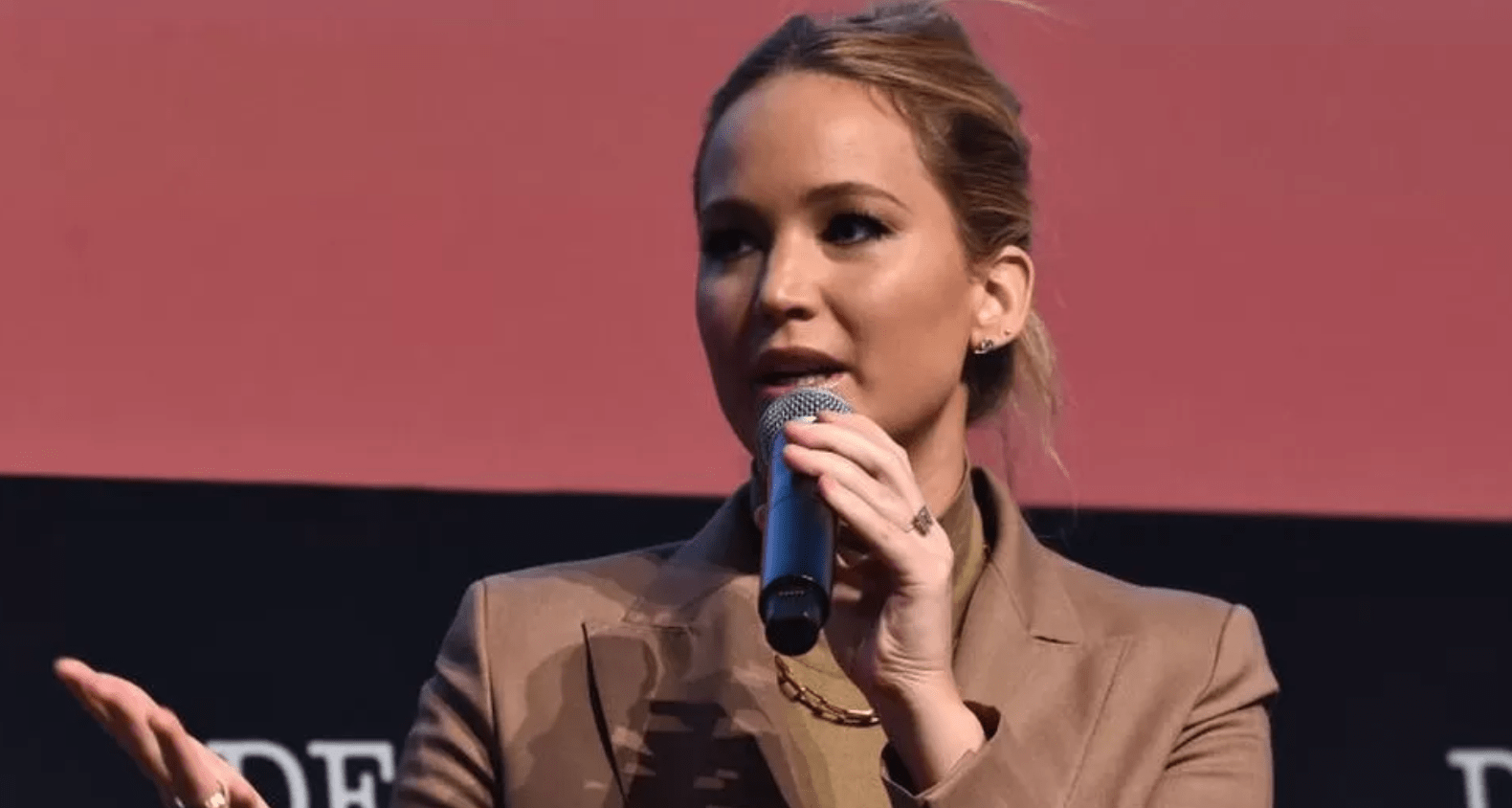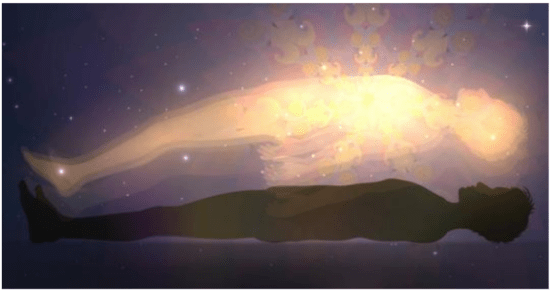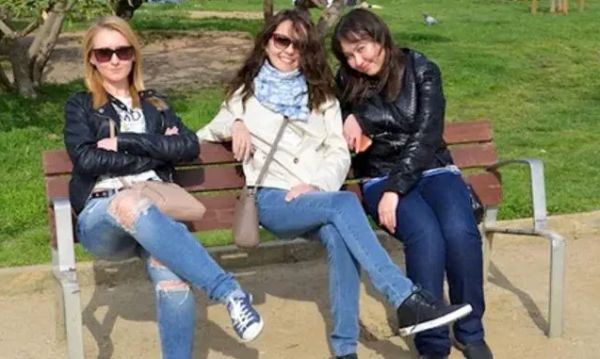In a tense and defiant encounter inside a car, a young woman fearlessly challenges a Taliban fighter. “You only oppress women,” she boldly asserts, to which he responds with anger, shouting, “I told you not to talk. I will kill you right here!”
Unyielding, she matches his intensity, raising her voice and fearlessly declares, “Okay, kill me! You closed schools and universities! It’s better to kill me!” This powerful exchange is surreptitiously captured by a shaky camera phone, documenting the direct confrontation between the courageous woman and the militant.
In the gripping documentary Bread and Roses, a pivotal scene captures the arrest of a young woman following a protest in Kabul, just moments before she is taken to a holding cell. This scene is a poignant representation of the daily lives of three women in the aftermath of the Taliban takeover.
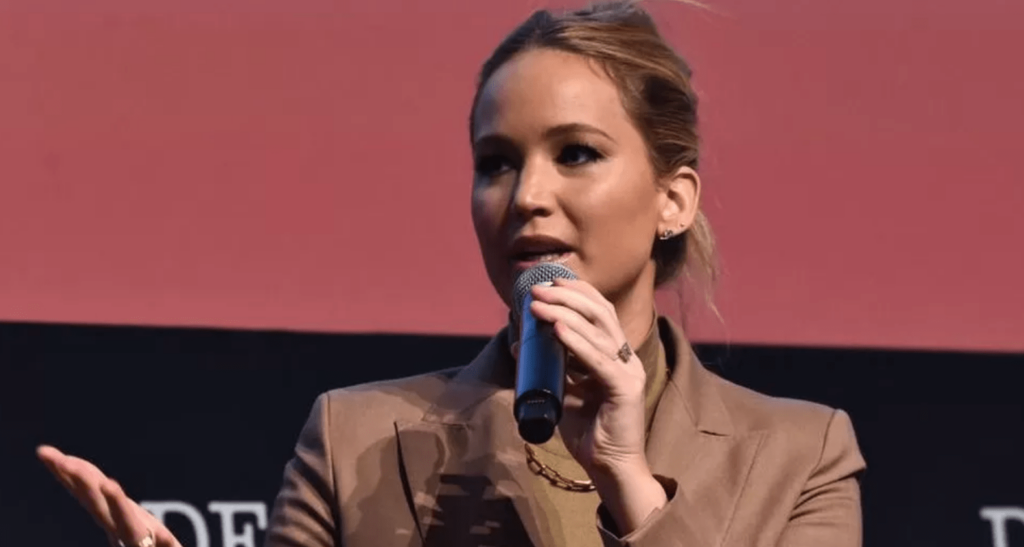
The producer of the documentary is none other than Oscar-winning actress Jennifer Lawrence, who explains to the BBC why this particular moment holds great significance for her. Lawrence expresses her intense emotional response, saying, “My heart was beating so fast watching these women defy the Taliban. It’s a side of the story that doesn’t make it to the news every day, women fighting back, and it’s a crucial part of our film and the stories we’re telling.”
She further emphasizes the devastating impact of the sudden loss of control experienced by Afghan women. “They have been stripped of their autonomy within their own country. It is absolutely crucial for them to have the opportunity to document their own story, in their own voices.”
Through Bread and Roses, Jennifer Lawrence aims to shed light on the resilience and determination of Afghan women, providing a platform for their stories to be heard and understood in a world that often overlooks their struggles and triumphs.
Jennifer Lawrence’s production company, Excellent Cadaver, which she established in 2018 with her friend Justine Ciarrocchi, is the force behind the creation of this impactful documentary. Lawrence reveals that the film was born out of a combination of deep emotions and a sense of urgency. Frustrated and powerless by what she witnessed in the news, Lawrence felt compelled to take action.
Ciarrocchi explains that Lawrence had an intense response to the events surrounding the fall of Kabul in 2021, particularly due to the dire circumstances faced by women. Ciarrocchi recounts Lawrence’s determination, stating, “She said, ‘We’ve got to give somebody a platform to tell this story in a meaningful way.’”
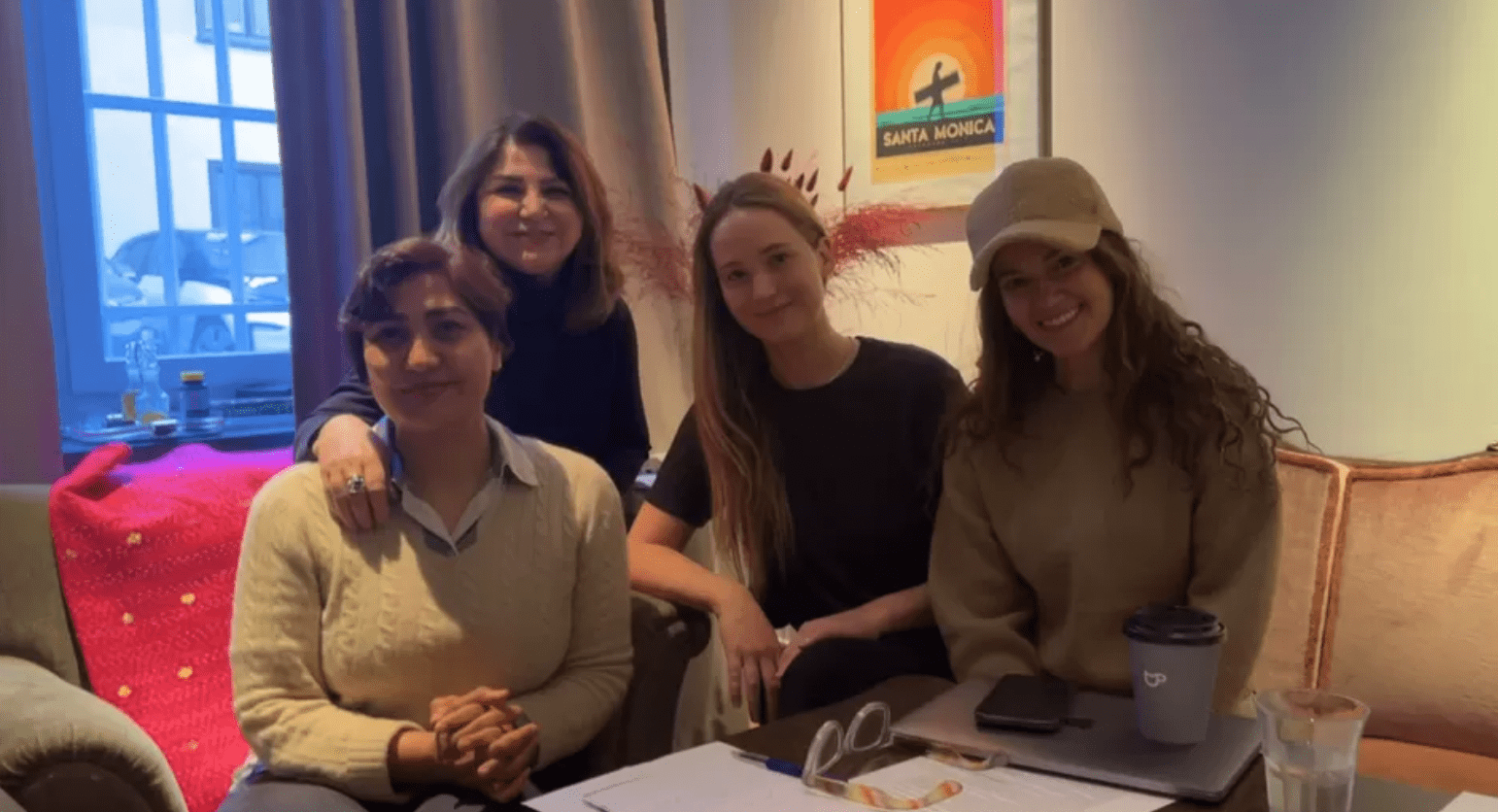
That “somebody” turned out to be Sahra Mani, a documentary filmmaker and co-founder of Afghan Doc House, an independent production company based in Kabul. Sahra Mani’s involvement in the project brought an authentic perspective and firsthand experience of the challenges faced by Afghan women.
By collaborating with Sahra Mani and Afghan Doc House, Jennifer Lawrence and her production company, Excellent Cadaver, sought to provide a significant platform for these women to share their stories in a way that resonates with audiences and sheds light on their lived realities.
Both Jennifer Lawrence and Justine Ciarrocchi were deeply moved by Sahra Mani’s critically acclaimed documentary, “A Thousand Girls Like Me.” The film tells the powerful story of a courageous Afghan woman who confronts sexual abuse by her father on national television, despite being ignored by her own family and the authorities.
Motivated by the impact of Mani’s work, Ciarrocchi embarked on a mission to find her. To their surprise, Mani had already initiated a project that followed the journeys of three women in Afghanistan as they struggled to establish a semblance of autonomy in the aftermath of the Taliban’s takeover, which had resulted in the exclusion of girls and women from educational institutions.
Mani employed covert cameras and encouraged the women to film themselves in safehouses alongside their friends and families. These clandestine recordings captured their experiences and challenges in a deeply personal and intimate manner.
Among the remarkable sequences in the documentary is a secret meeting held in a windowless basement tucked away on a side street in Kabul. Inside, rows of desks and chairs create a makeshift classroom setting, where over a dozen women gather. Steam rises from the cups holding their drinks, as they sit, coming from different groups that protested following the Taliban’s resurgence in August 2021.
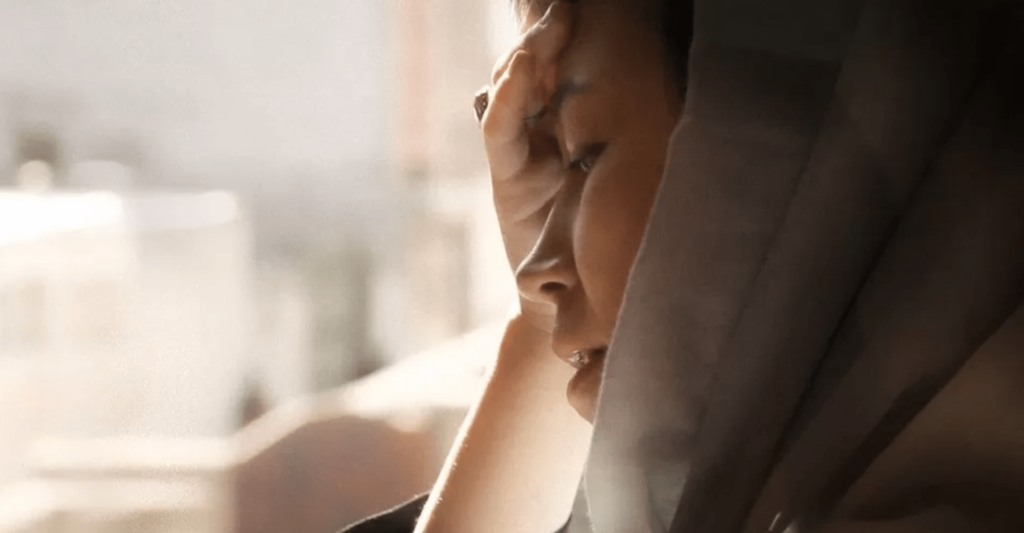
The viewer is led to this clandestine gathering by Zahra, a dentist who serves as a guide. As she addresses the group, Zahra reminisces about wearing high heels, adorning herself with perfume, and enjoying outings to the park with her friends. The smiles shared among the women reflect a collective sense of shared experiences and camaraderie.
As the group listens intently, a writer named Vahideh steps forward and delivers an impassioned statement. “Women must write their own history,” Vahideh asserts with conviction, eliciting murmurs of agreement from those gathered. “Women across the globe are not given the recognition they deserve.”
Sahra Mani, the filmmaker, understood the delicate nature of filming in such private and perilous situations. She recognized the challenges firsthand, having experienced similar hardships herself. “I understand how to navigate difficulties because I am one of them,” Mani acknowledges. She adamantly states, “They are not victims; they are heroes.”
However, striking the right balance between ensuring the safety of the women involved and telling their story authentically was a complex task. Mani reveals that numerous late-night conversations took place during the production process between herself, Ciarrocchi, and Lawrence. They were a constant source of support, ready to address any issues or challenges that arose. Mani gratefully acknowledges their unwavering presence, stating, “When women unite, everything becomes possible.”
These collaborative efforts exemplify the determination and solidarity displayed by the filmmakers and the shared commitment to honoring the stories and experiences of the courageous women involved in the documentary.
With Sahra Mani and the other women featured in the documentary now safely out of the country, the producers of Bread and Roses felt confident in submitting the film for wider distribution, commencing with its premiere at the Cannes Film Festival.
However, Ciarrocchi and Lawrence acknowledge the challenge of reaching a large audience with a story that offers a snapshot of an ongoing and devastating conflict. Lawrence expresses the frustration and helplessness she feels, stating, “There’s not an end to this story, and you feel pretty much helpless when thinking about how to do anything about it. It’s a hard thing to market.”
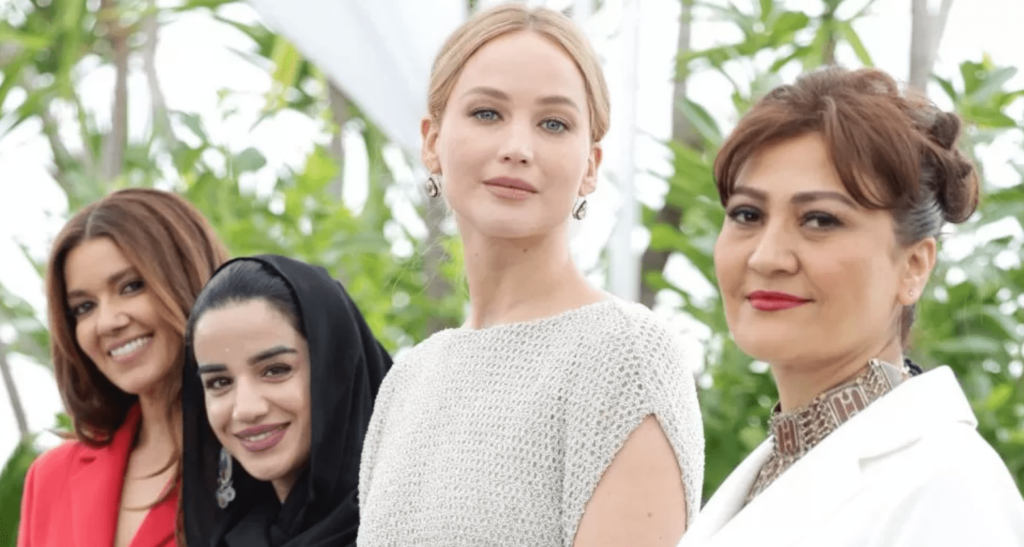
As women executive producers, Ciarrocchi and Lawrence recognize that they are still part of a minority within the Hollywood industry. A study conducted in 2022 by the Center for the Study of Women in Television and Film revealed that women accounted for only 24% of directors, writers, and producers in the highest-grossing films, representing a decline from the previous year.
Lawrence, however, remains inspired and optimistic when diverse voices are included in the filmmaking process. She believes that audiences crave diversity and representation, stating, “It’s what people want. The audiences want it.” Ciarrocchi echoes this sentiment, emphasizing the responsibility they feel in using Lawrence’s platform to provide opportunities for other women and to share their stories. She emphasizes the importance of employing a diverse group of individuals.
Lawrence humorously responds, emphasizing the impact of her own perspective as a woman, saying, “That’s also because I am a woman. I’m lucky enough to not have the biased idea that women aren’t as good at things!”
By prioritizing diversity, inclusivity, and amplifying women’s voices, Ciarrocchi and Lawrence aim to contribute to the progress of the film industry and the representation of underrepresented communities.
